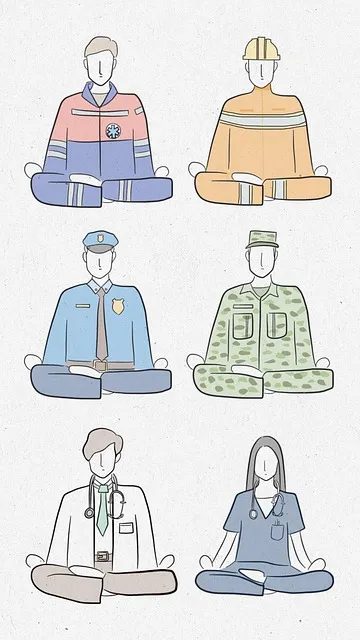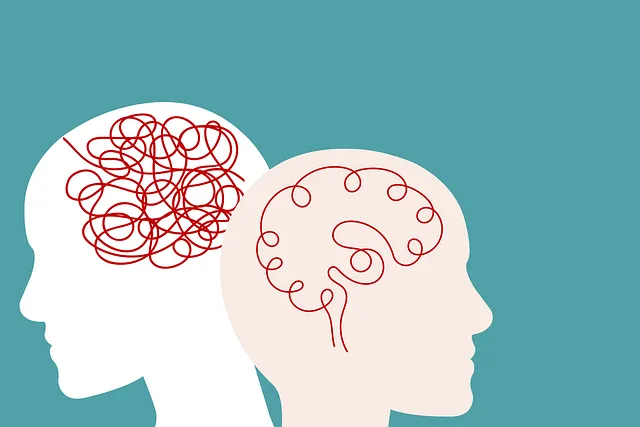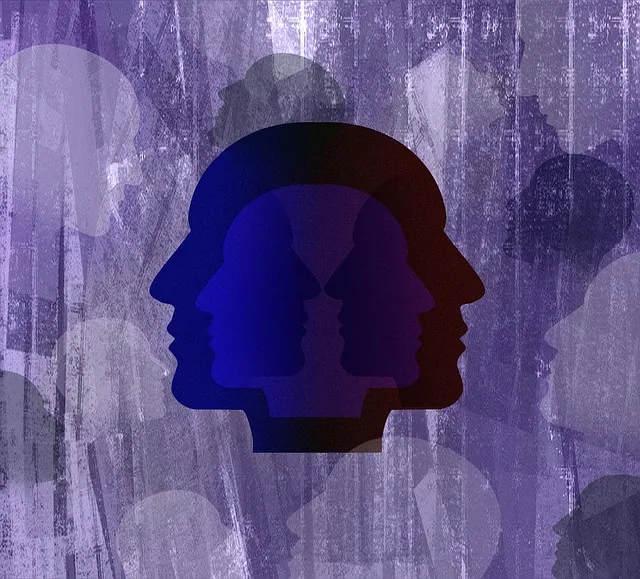Cultural competency training is crucial for healthcare providers at Kaiser Permanente mental health jobs Boulder, serving a diverse community. This training equips staff to understand and respect different cultural backgrounds, leading to personalized care, improved patient-provider relationships, and better health outcomes. Through initiatives like Community Outreach, Social Skills Training, and Trauma Support Services, Kaiser Permanente fosters inclusivity, addresses cultural barriers, and enhances patient satisfaction in Boulder and beyond. Continuous learning through workshops and discussions ensures healthcare professionals stay informed and empathetic, tailoring services to diverse populations' mental wellness needs.
Healthcare provider cultural competency training is essential for delivering quality care in diverse communities. In this article, we explore the concept of cultural competency within healthcare, focusing on Kaiser Permanente’s innovative approach to mental health training in Boulder. We discuss the benefits for both patients and providers, highlighting improved patient outcomes and enhanced provider skills. Additionally, we delve into best practices for continuous learning and implementation, emphasizing the importance of ongoing education in the dynamic field of healthcare services in Boulder, particularly within Kaiser Permanente mental health jobs.
- Understanding Cultural Competency in Healthcare
- Kaiser Permanente's Approach to Mental Health Training
- Benefits for Patients and Providers in Boulder
- Best Practices for Continuous Learning and Implementation
Understanding Cultural Competency in Healthcare

Cultural competency in healthcare refers to the ability of providers to understand, appreciate, and effectively interact with patients from diverse cultural backgrounds. It’s more than just awareness; it involves incorporating cultural knowledge into clinical practice to deliver patient-centered care. This is particularly relevant for organizations like Kaiser Permanente mental health jobs Boulder, where a diverse community seeks services. By integrating cultural competency training, healthcare providers can better understand the unique needs and perspectives of their patients, leading to improved patient outcomes.
In light of this, Community Outreach Program Implementations, Social Skills Training, and Trauma Support Services play significant roles in enhancing cultural competency. These initiatives equip healthcare workers with the skills to navigate complex cultural dynamics, break down barriers, and foster an inclusive environment. Such efforts are crucial in addressing potential biases or misunderstandings that may arise during interactions with patients from various ethnic, racial, and socio-economic groups.
Kaiser Permanente's Approach to Mental Health Training

Kaiser Permanente, a renowned healthcare provider, has been at the forefront of implementing comprehensive mental health training programs for its staff, particularly in its Boulder location. This initiative reflects their commitment to addressing the growing importance of cultural competency, especially regarding emotional regulation and self-awareness among healthcare professionals. The program focuses on equipping employees with the skills to provide empathetic and culturally sensitive care to diverse patient populations.
Through interactive workshops and educational sessions, Kaiser Permanente teaches various self-awareness exercises tailored to enhance emotional intelligence. These exercises are designed to help staff members better understand their own biases and triggers, which is crucial for managing stress and maintaining professionalism in high-pressure environments. By fostering an atmosphere of open dialogue and learning, the organization promotes mental wellness among its workforce, ensuring they can, in turn, offer superior care to patients seeking mental health services in Boulder and beyond.
Benefits for Patients and Providers in Boulder

In Boulder, healthcare provider cultural competency training has emerged as a game-changer, benefiting both patients and providers alike. By equipping medical professionals with the skills to understand and respect diverse cultural backgrounds, this training fosters a more inclusive environment. This is particularly significant for communities seeking Kaiser Permanente mental health jobs in Boulder, where varied populations seek services tailored to their unique needs.
Cultural competency enhances patient care by enabling healthcare providers to address not just physical symptoms but also the psychological and social factors that influence well-being. For instance, it aids in recognizing and effectively treating conditions like depression and anxiety, which are prevalent across various cultures. Through this training, providers learn to adapt their communication styles, offer culturally sensitive therapies, and ultimately, provide more personalized care, thereby improving patient satisfaction and outcomes—including preventing and alleviating issues like Depression Prevention and Anxiety Relief.
Best Practices for Continuous Learning and Implementation

In healthcare provider cultural competency training, continuous learning and implementation are key to fostering effective patient care. Organizations like Kaiser Permanente, particularly in mental health jobs Boulder, should prioritize ongoing educational opportunities for their staff. This can include regular workshops, webinars, and peer-led discussions focused on diverse cultural perspectives, ethical considerations, and coping skills development. By integrating these best practices, healthcare providers can enhance their self-awareness exercises and stay abreast of emerging research and trends in mental wellness.
Encouraging a culture of learning ensures that medical professionals are equipped to navigate complex interpersonal dynamics with sensitivity and cultural intelligence. Regular training sessions should not only cover theoretical aspects but also include practical scenarios tailored to the diverse populations served by Kaiser Permanente. Incorporating interactive activities, case studies, and self-reflection exercises promotes active learning and prepares healthcare providers to offer inclusive and empathetic care in their Boulder mental health jobs.
Cultural competency training, as demonstrated by Kaiser Permanente’s innovative mental health programs in Boulder, is a game-changer in healthcare. By fostering understanding and empathy among providers, these initiatives improve patient outcomes and experiences, especially for those seeking mental health services. For aspiring professionals in the field, pursuing Kaiser Permanente mental health jobs in Boulder can offer unique opportunities to contribute to this evolving landscape of culturally sensitive care. Continuously integrating best practices into training ensures that healthcare providers are equipped to serve diverse communities effectively, ultimately enriching both patient lives and the broader community.






